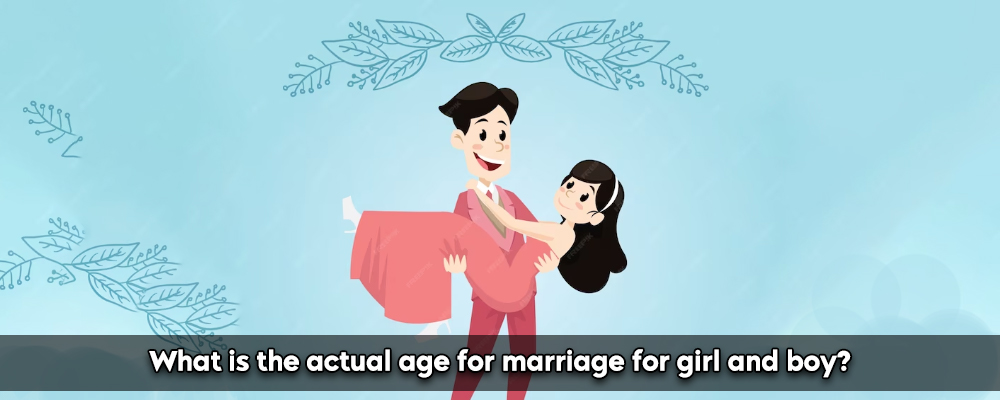Court marriages in India, unlike marriages as per one’s customs, are solemnised under the Special Marriage Act,1954, as per which, marriages can be solemnised through the court or in the presence of the marriage officer with three witnesses present . If you are considering getting married by the court, it shall be favourable to seek legal advice from experienced court marriage lawyers in your city.
Eligibility
Persons belonging to different castes, religions, place of birth etc. can marry through the Court.
Need A Legal Advice
The internet is not a lawyer and neither are you. Talk to a real lawyer about your legal issue

Conditions for court marriage
Numerous conditions which are necessary to be fulfilled for interested parties in order to register for the court marriage-
- No pre-existing marriage should be there, in case either of the applicant was married previously, no living spouse should be in the picture when applying for court marriage, i.e. at the time of the court marriage, such party shall either be a divorcee or a widower/widow.
- The groom applying for court marriage must be 21 years old or more and the bride must be at least 18 years old.
- The parties who are applying for court marriage must not fall within degrees of prohibited relationship.
Documents required
- Application form must be duly filled and signed by the applicants
- Receipt for fees which is paid for the application form must be attached as well
- Documents proving date of birth of the parties.
- Documentary evidence for stay in the area falling under the jurisdiction of the marriage officer.
- Affidavits from both parties proving their-
- Date of birth
- Present marital status, i.e. if they are unmarried, divorced or widow/er
- Affirmation from parties, that they do not fall within the degrees of prohibited relationship according to the Act.
- Passport sized photos of the parties duly attested by a gazetted officer
Procedure for Court Marriage
Mentioned under Chapter II of the Act of 1955, which is titled as “solemnization of special marriages”, the court marriage procedure can be described as follows-
Notice for intended marriage
According to Section 5 of the Act of 1955, notice must be given to the marriage officer. The parties would have to submit a notice in writing and in the form as has been prescribed under Second Schedule to the Marriage officer. The marriage officer mentioned should have jurisdiction over the area where either of the parties have resided for a period not less than 1 month.
Publication
- The Marriage Officer will publish the marriage notice in some inconspicuous part of his office.
- All true copies of the notices would be kept in the Marriage Notice Book.
- If it is found that neither of the parties is residing in the area under the jurisdiction of the marriage officer, the marriage officer, in such a case, would send the copies of the notice to the marriage officer under whose jurisdiction either of the parties to the marriage application resides.
Objection
- Section 7 of the Act of 1954 provides that any person may raise an objection to the notice of marriage published in the office of the Marriage Officer, such objection must be raised on the grounds discussed under Section 7 of the Act.
- Objections raised to the marriage application has to be raised within a period of 30 days from the publication of the notice, and shall be recorded in the Marriage Notice Book by the Marriage Registrar.
- Provided under Section 8 of the Act of 1954, the Marriage Officer would have a period of 30 days to enquire about the validity of the objections raised.
- The court marriage shall be solemnised in case such objection was found to be invalid.
- But, on the other hand, if the objection so raised was found to be valid by the Marriage Officer then the application for marriage will be denied, however the applicant would still have the option of taking the matter in appeal before the District Court.
Place of solemnisation
- Section 12 of the Act of 1954, provides that the court marriage can be solemnised at the office of the Marriage Officer or at a place falling within a reasonable distance.
- Marriages would be valid, if both parties in the presence of the marriage officer declare that they wish to get married to the other party in the presence of three witnesses.
Conclusion
As has been mentioned above, the legal age for marriage for boys is 21 years, while for girls, it is 18 years, however, a new Bill was presented before the Parliament to increase the marriage age for brides from 18 to 21 years, which has not been amended yet. Hence, currently the minimum legal age at which the girls may get married is still 18 years. If you wish to seek legal guidance or further information on the procedure for the court marriage or wish to talk to a lawyer or seek free legal advice for any matter related to the civil or criminal, you may contact us at Lead India.





 Talk to a Lawyer
Talk to a Lawyer